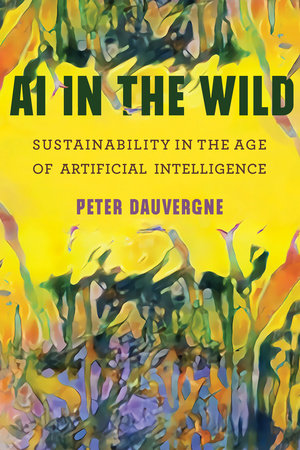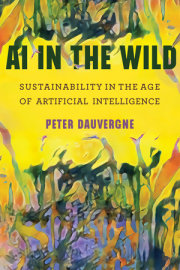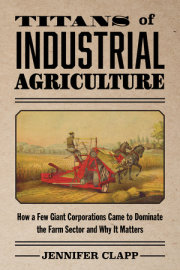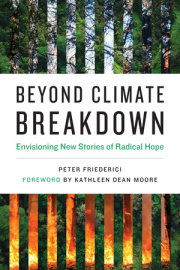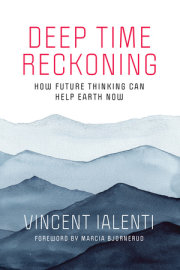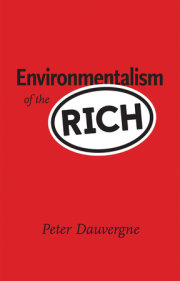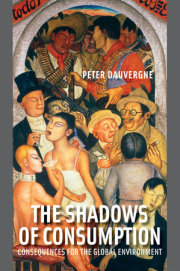Artificial intelligence, as this chapter underlines, is rapidly gaining importance as a tool for mapping, conserving, and rewilding the earth. The value for the environmental sciences is far-reaching. Machine learning is improving the modeling of earth-system interactions and climate-change scenarios, helping with the spatial mapping of deforestation and oldgrowth forests under threat, creating new software to expose wildlife trafficking on the internet, allowing for the real-time tracking of industrial fishing, and enabling real-time mapping of migrating birds and coral-reef bleaching. These examples in this chapter, moreover, are just a few of the many uses environmental scientists and conservationists are finding for artificial intelligence.
Environmentalists are further building on advances in machine learning and robotics to develop new tools of conservation and management. So far, we’ve seen how one nonprofit startup is repurposing cell phones to create AI-enhanced listening devices to alert state rangers and community guards of suspicious activity in the tropical rainforests. And we’ve seen how another team of researchers is developing a smart submersible to patrol Australia’s Great Barrier Reef to cull deadly outbreaks of crown-of-thorns starfish. Once again, these are but a few of the efforts to employ AI to improve environmental management.
Government grants are supporting some of this research. So is the United Nations, which since 2017 has been cohosting with the IBM Watson AI XPRIZE an annual summit called “AI for Good.” This summit brings together governments, firms, nonprofits, and academic researchers to pursue collaborative ways to leverage progress in artificial intelligence to help achieve the UN’s 2030 Sustainable Development Goals.
In addition, companies such as Google and Microsoft are donating software and cloud services, providing AI infrastructure, and funding nonprofit projects. Granted, this investment is small compared to the size of these companies. But supports such as Google’s open-source TensorFlow software library and Microsoft’s Azure cloud computing service are definitely of great value to nonprofit organizations and university researchers. Support from Google’s Impact Challenges, IBM’s XPRIZE, and Microsoft’s AI for Earth are clearly helping, too.
As the analysis so far has further shown, staff within big technology companies are also supporting nonprofit project teams, coauthoring articles, and helping develop open-access software and data-collection platforms. A few corporate AI leaders have initiated nonprofit partnerships to advance conservation, nonapplied research, and open-access learning projects. There are some examples of industry leaders supporting nonprofit AI research companies, such as OpenAI, which has a mission “to build safe artificial general intelligence (AGI), and ensure AGI’s benefits are as widely and evenly distributed as possible.”
However, the primary energy underlying the upsurge in the use of artificial intelligence for environmental research, conservation, and management is coming not from governments or transnational corporations but from a diverse array of nonprofits, startups, universities, and environmental advocacy organizations. It is the individuals from within these institutions who are in the computer labs cleaning data and training AI systems, in the field deploying AI-enhanced technologies to confront illegal logging and poaching, and on the oceans testing AI devices to eradicate destructive species and clean up pollution.
All of these efforts are combining to improve environmental management. One advantage of integrating AI into the global political economy of conservation is its ability to help scale up analysis and solutions. There is some hope this will occur as the cost of machine learning software and robots inevitably declines. Yet AI technology can take us only so far toward lasting, far-reaching solutions, as it has little power to confront the underlying political and socioeconomic forces exploiting natural resources and destroying nature for profit. Tellingly, the extent of global environmental problems still far exceeds the scale of any AI solution to date.
Even as artificial intelligence improves environmental management and conservation science, tropical deforestation continues to rage. The global populations of wild animals continue to fall, with the numbers of birds, mammals, fish, reptiles, and amphibians declining by at least 60 percent since 1970. The coral reefs continue to die. Overfishing continues nearly unabated. Freshwater quality continues to deteriorate. Pollution of the oceans continues to mount. Biodiversity loss continues to stay far above natural extinction rates. Meanwhile, the crisis of climate change continues to escalate, with average global temperatures still on track to rise another 2 to 4 degrees Celsius by the end of this century, bringing increasingly severe heatwaves, protracted droughts, violent storms, rising seas, and a mass extinction of species.
Such trends are sobering. But they do not mean the gains from using AI to research and protect global ecosystems are worthless, little more than tinkering as the earth burns. Our global environmental crisis would certainly be worse without the ingenuity and commitment of the scientists, engineers, ecologists, and activists building AI eco-software and eco-robots. This is true, too, as we’ll see next, of those within big business who are now turning to artificial intelligence to increase energy efficiency, reduce waste, find eco-savings, and improve the environmental management of global supply chains.
Copyright © 2020 by Peter Dauvergne. All rights reserved. No part of this excerpt may be reproduced or reprinted without permission in writing from the publisher.

